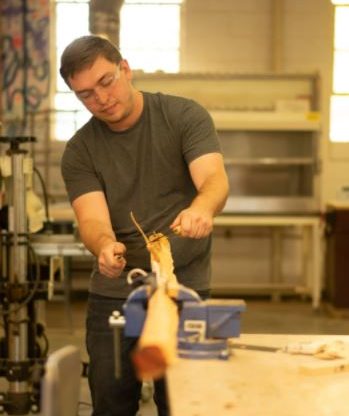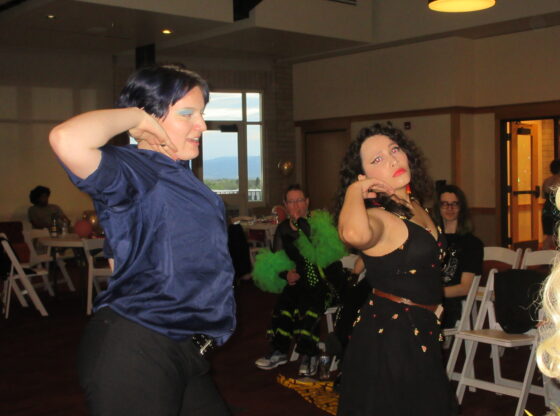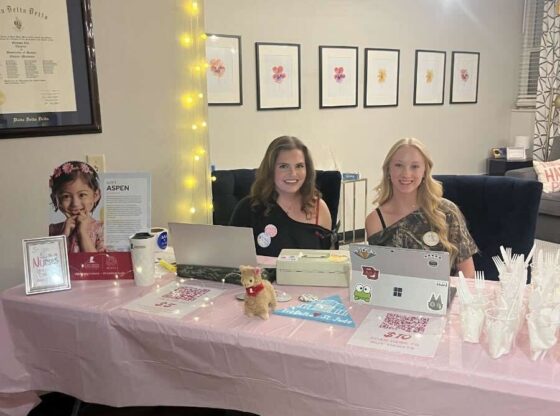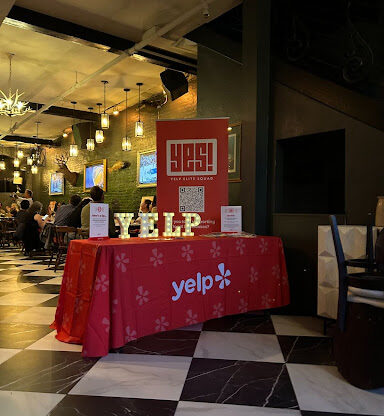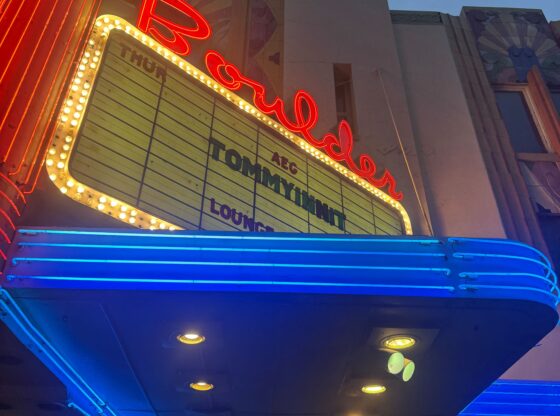Housed in the Ritchie School of Engineering and Computer Science, the Innovation Floor opened in the fall of 2016. The Innovation Labs include the maker space, and Woods Lab which are open to students, faculty and staff. You can learn more through a virtual visit of the spaces housed in the engineering school, view featured speakers and ongoing research online.
Students from any discipline can use the labs for class or personal projects. Students have used the space to launch their own products and businesses using the tools the space has to offer. In the last few years, DU students have launched 25 businesses from their work completed in the maker space.
Michael Caston holds the titles of Professor of the Practice in Innovation and Product Design and Development, the Executive Director of the Innovation Labs, and the Faculty Director of the Innovation and Entrepreneurship Living Learning Community at the University of Denver.
Caston emphasized his belief that the space serves as a community builder that extends beyond its main demographic of engineering and computer science students. “It’s not just students. Faculty and staff can come in to laser engrave something or use the sewing machines to fix a hole in their pants or make a new outfit. And we’ve also traditionally hosted about six clubs in that space,” Caston said. He added that the most popular club the space houses is Dungeons and Dragons.
A third maker space for plastics is currently in the works in the metallurgy building, which currently houses the woods maker space which requires a two hour long workshop to gain access. Workshops are hosted by the woods lab maker space generally once a week.
Students interested in research through the Ritchie School can also refer to the list of faculty leading research in computer science, electrical and computer engineering and mechanical and materials engineering. More information can be found by scheduling a chat with faculty from the respective fields as well.
Caston also elaborated on the use of the space beyond an innovation space, as an event, full collaboration and co-working space equipped with screens and tables for teleconferencing, presentations and pitching. During pre-COVID-19 times, about 100 events were hosted per year, including club events and workshops. Anyone wanting to host an event within the spaces can reach out to Michael Caston to receive support from the student staff to host their event. Previous events hosted by the maker space include Global Game Jam: a global two-day hackathon, ChickTech and Girls with Gadgets: two-day workshops for middle school and high school girls in the community.

Caston noted that collaboration of industry projects has provided some funding for the Innovation Lab. While there are no formal partnerships with support outside of any entity other than the engineering school, support from other units on campus is welcomed. For companies and entities looking to establish a relationship with the university and set up a pipeline for recruiting, the Innovation Space holds great potential for collaboration.
Over 120 industry and community projects have been completed by students over the last few years. A current project is a collaboration with the Denver Zoo. The initial focus will be on improving and replicating natural environments in the bat cave for fruit bats that help them build community. Students will also work to expand enclosure spaces and with the bat hospital. Future projects might involve working with the tigers and bears at the Denver Zoo, according to Caston.
“Fundamentally, how do you validate what you’re learning in the classroom in a real and practical way?” Caston asked.

Currently, DU students are using the Innovation Lab as a testing facility to develop disaster recovery solutions for the Colorado Department of Transportation. The initiative is part of a commercialization project through the non-profit Colorado Universities Innovation Council (CUIC) and the South Korean wireless solutions company, EUCAST. After assessing its wireless technologies, product portfolio and market application cases, students will develop a U.S. market entry plan for the wireless company using a lead customer approach. CUIC connects cross-campus teams of students with technology companies to work on key strategic initiatives, another of which is a collaboration with CACI.
CACI is a $6 billion military technology company focusing on national security. CACI is offering DU students the opportunity to develop applications using their micro-navigation technology already deployed in the Innovation Lab. The technology is currently capable of helping the blind and visually impaired to navigate autonomously through a museum without the limitation of Braille signage and maps. The student team is building on that application by developing an Amazing Race meets a museum application that will gamify attendees’ museum experience by building off CACI’s ultra-wideband indoor precision location and orientation technology’s system of wall-mounted sensors independent of external networks.
Seeking to solve the problem that many graduates face: becoming employed without experience and gaining experience without prior employment, initiatives like the microFactory, employ students from any discipline, helping them gain experience and employment while applying their knowledge during their student experience.

